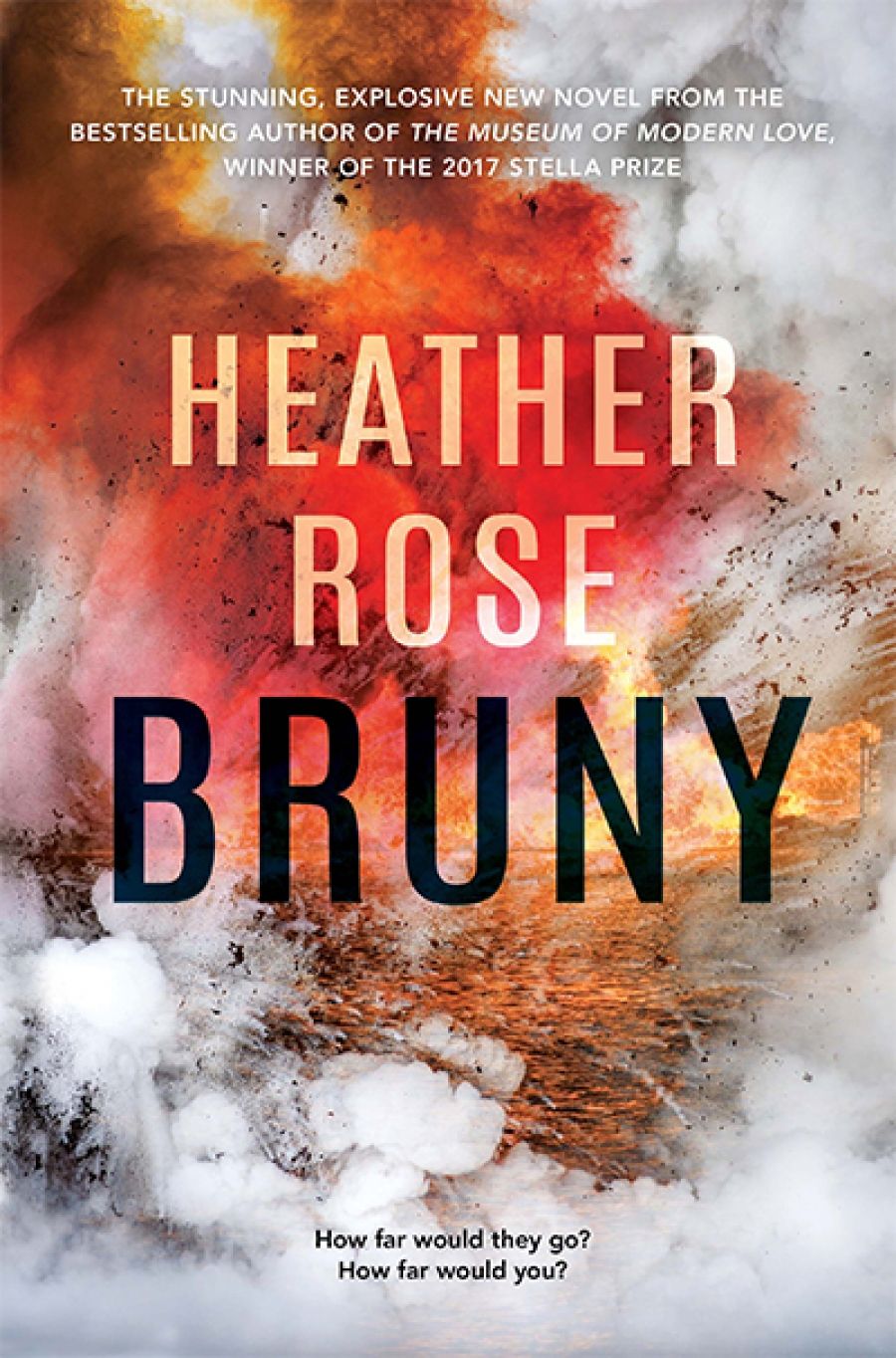
- Free Article: No
- Contents Category: Fiction
- Review Article: Yes
- Online Only: No
- Grid Image (300px * 250px):

- Alt Tag (Grid Image): Bruny
- Book 1 Title: Bruny
- Book 1 Biblio: Allen & Unwin, $32.99 pb, 422 pp, 9781760875169
The narrator is Astrid Coleman (Ace), whose twin brother, John Coleman (JC), is the Liberal premier of Tasmania. Their half-sister, Max, is the Labor leader of the opposition. Both JC and Max have supported the building of the bridge, despite strong opposition from the Greens and local protest groups. JC asks Ace, who works for the United Nations in conflict resolution, to return from New York to help him manage the crisis. The prime minister and JC are both determined to get the bridge built before the state election in three months, and when Ace arrives, the Australian government has just passed controversial new legislation permitting three hundred Chinese workers to come to Tasmania to help complete it.
JC introduces Ace to all the major players, Chinese and Australian, including three unsavoury politicians: Barney Viper, Frank Pringle, and Aiden Abbott. She also meets the Bruny locals, including Dan Macmillan, foreman on the bridge, and members of the local protest groups. She learns that, as well as being heavily involved in the building of the bridge, the Chinese have been investing in large parts of Bruny Island and Tasmania. Her quest to find out why drives the narrative.
Rose is concerned with more than just political intrigue. This is a family drama as well. Ace, who left for overseas as soon as she finished school to escape Tasmania and her family, struggles with feelings of guilt about leaving and about not coming back to see her ageing parents often enough. When she does return, she recalls why she left. Her mother, Hyacinth, greets Ace, whom she hasn’t seen in ten years, thus, ‘Ah, Astrid, sweetheart, how you’ve aged.’ In relation to JC, Ace is torn between family loyalty and a deepening suspicion that he is involved in something untoward.
Bruny is also a homage to Tasmania’s natural beauty and a celebration of its way of life. There is, Rose writes, ‘Something to do with the light and the air that is so crisp and unpolluted it almost hurts to take a deep breath.’ Ace realises that ‘to live on an island isn’t just a location. It’s a sense of belonging. It’s history and sacrifice. It’s a choice to be remote … a kind of metaphor.’ As Dan puts it, ‘When you settle for Tassie, you’ve settled for less in some ways; less of what matters out there, more of what matters here.’ Rose also pays tribute to Tasmania’s proud history of protest – anti-bridge protesters are ‘activists protecting their path, their way of life … they were trying to preserve, not destroy’.
Although there is much to enjoy in Bruny, it is not as strong as Rose’s earlier work. The plot strains credulity at times. For instance, it is hard to imagine that in any one state all three main political players – premier, leader of the opposition, and chief crisis manager – would be siblings. The romance between Ace and Dan, clearly signalled early on, takes too long to develop, and the banter between them can be laboured – ‘“So have you got a hot date?” “You really love to ask the questions, don’t you?”’
The book’s main flaw is that too often Rose interrupts the narrative with a direct address from Ace to the reader about a particular political issue. This is interesting when it relates to issues central to the book – for example: ‘Australian foreign land ownership rules let most anyone buy anything’, or the ‘Belt and Road Initiative was about buying cooperation by way of Chinese investment in ports, rails, bridges’. However, when these addresses are not relevant to the plot, they not only disrupt the flow of the narrative but can also sound didactic. One such digression begins, ‘In the seventies Australia had been the nation of the fair go … but it was bled dry, the national heart.’ It goes on to criticise John Howard and the Murdoch press. Whatever your view on those topics, digressions such as this are a distraction that detract from the reader’s enjoyment of the book.



Comments powered by CComment